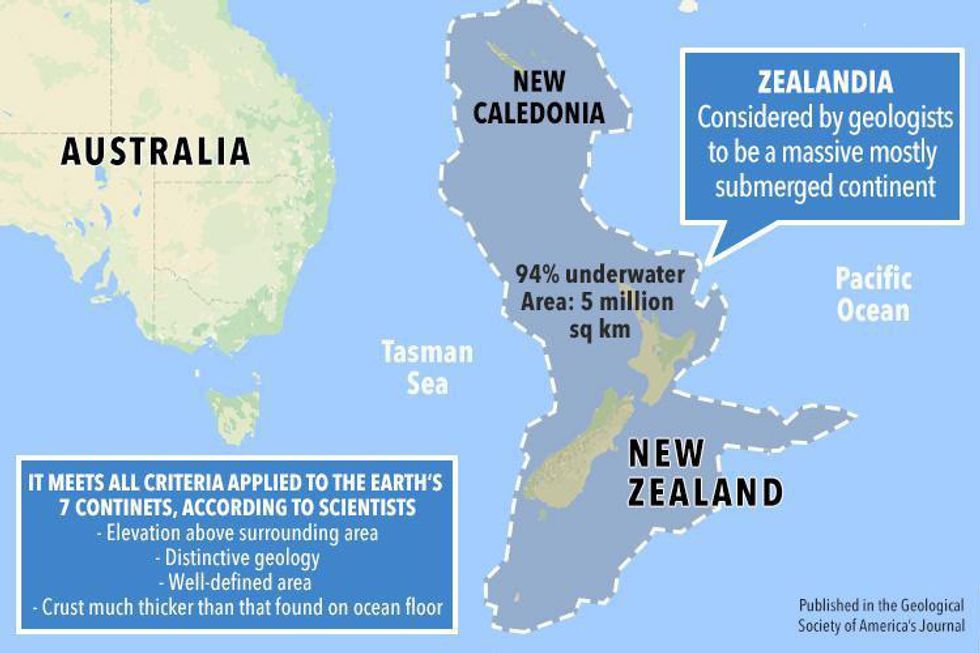The science community is buzzing with a “renewed push” to recognize a five million square kilometer land mass (two-thirds the size of Australia) as an eighth continent. Scientists have known for around twenty years that below New Zealand is a colossal landform, its highest mountains referred to as the country New Zealand, but only recently has a paper rekindled the movement. Published as a paper through the Geological Society of America’s journal, the “Zealandia” (coined by geophysicist Bruce Luyendyk in 1995) notion has gone viral throughout the world.
How was Zealandia formed? It is estimated that Zealandia was a part of Australia that broke away and sank around 60-85 million years ago and from Antarctica 85-130 million years ago. The Lost Continent is being argued as more than a collection of fragments or a micro-continent, but as a “fully fledged continent.”
While you may think that one of the requirements of a continent is to be above water, the technical qualifications for a continent don’t make any specifications on this subject. To be considered a continent, a landmass must fulfill a unique set of criteria:
1) elevation above the surrounding area
2) distinctive geology
3) a well-defined area
4) a crust thicker than the regular ocean floor.
The proposed continent of Zealandia, even though 94% is underwater, meets all of these standards and would be the smallest continent on Earth if approved. According to main contributor Nick Mortimer, the potential continent is so much more than an “extra name on a list,” but an integral tool for "exploring the cohesion and breakup of continental crust.” Because the land mass is so large and untouched by human factors, it can be beneficial for many different types of research.
Recognizing Zealandia as a continent would most likely have no effect on foreign affairs due to predetermined maritime borders, but would be a remarkable advancement for science.
Mortimer told The New Daily, “Now that we have defined and described Zealandia (the ‘what’ and ‘where’), it is up to future research to understand the ‘how’ and ‘why’. Giving names and labels to objects is a powerful action in science and society, so we are not exactly sure where this will go.”
Scientists have been trying for over two decades to get Zealandia recognized as a continent, and because there is no formal body that dictates such proposals, the researchers can only hope that their proclamation stands the test of time and is accepted by future science. However, if anything, the publicity that they have received from their paper is immense and could dramatically increase the research and intrigue with Zealandia. Only time will tell if we one day regard the planet with eight continents rather than seven.























